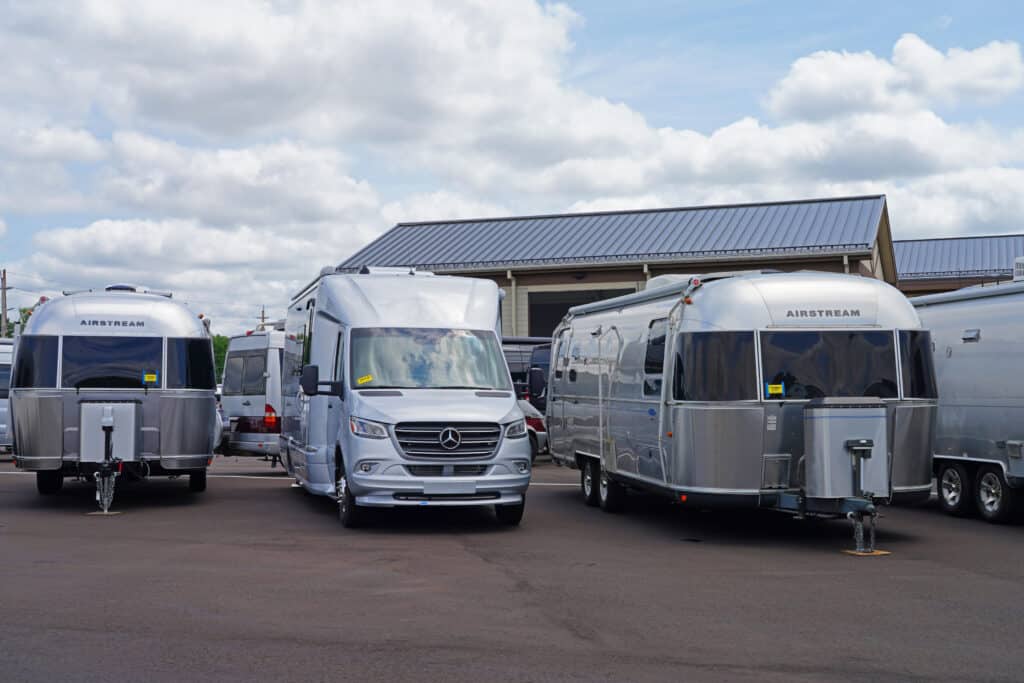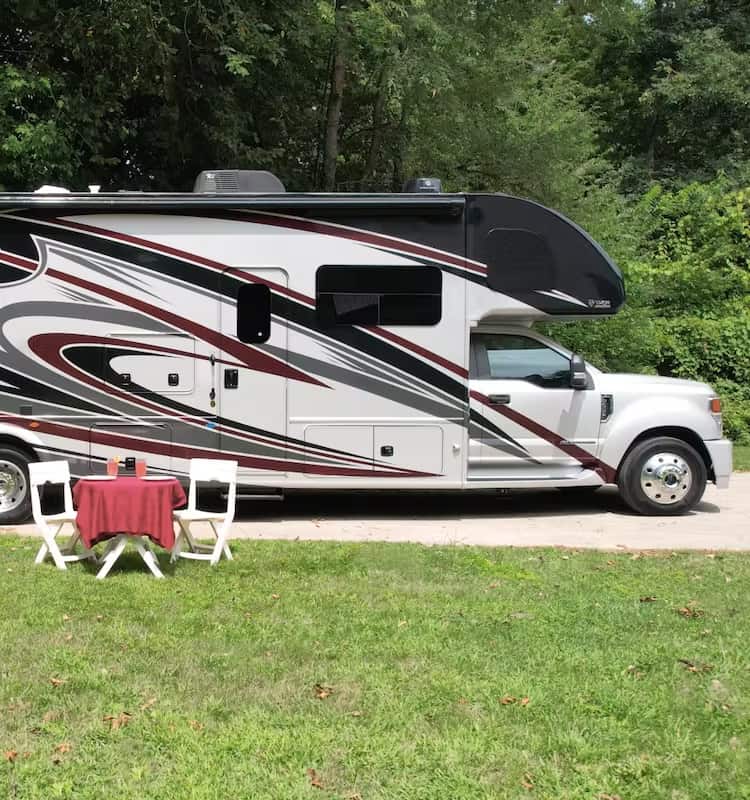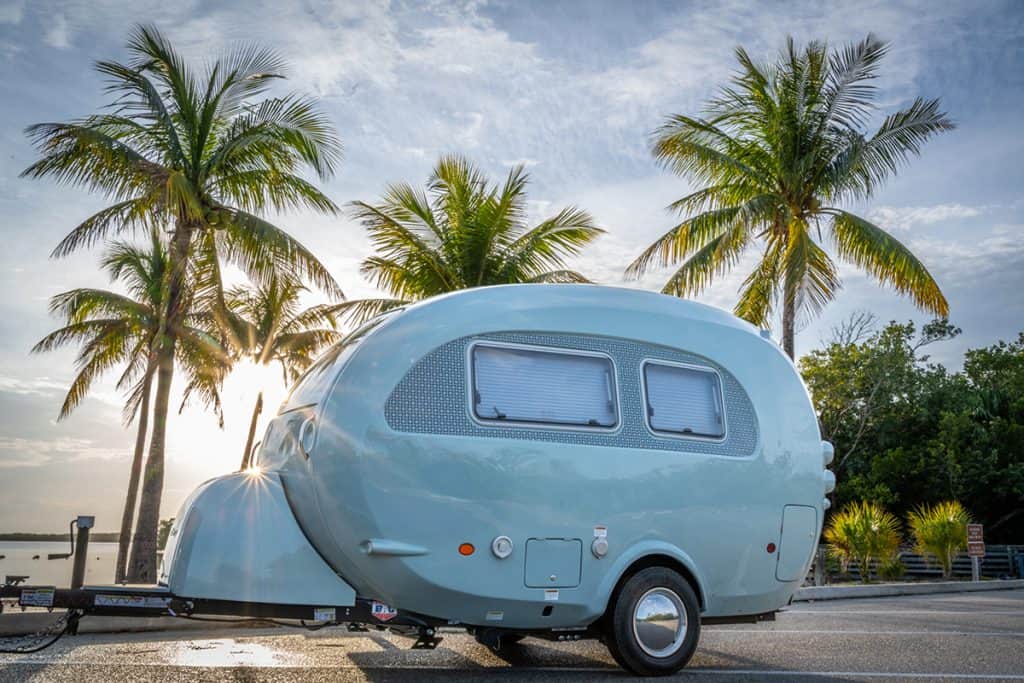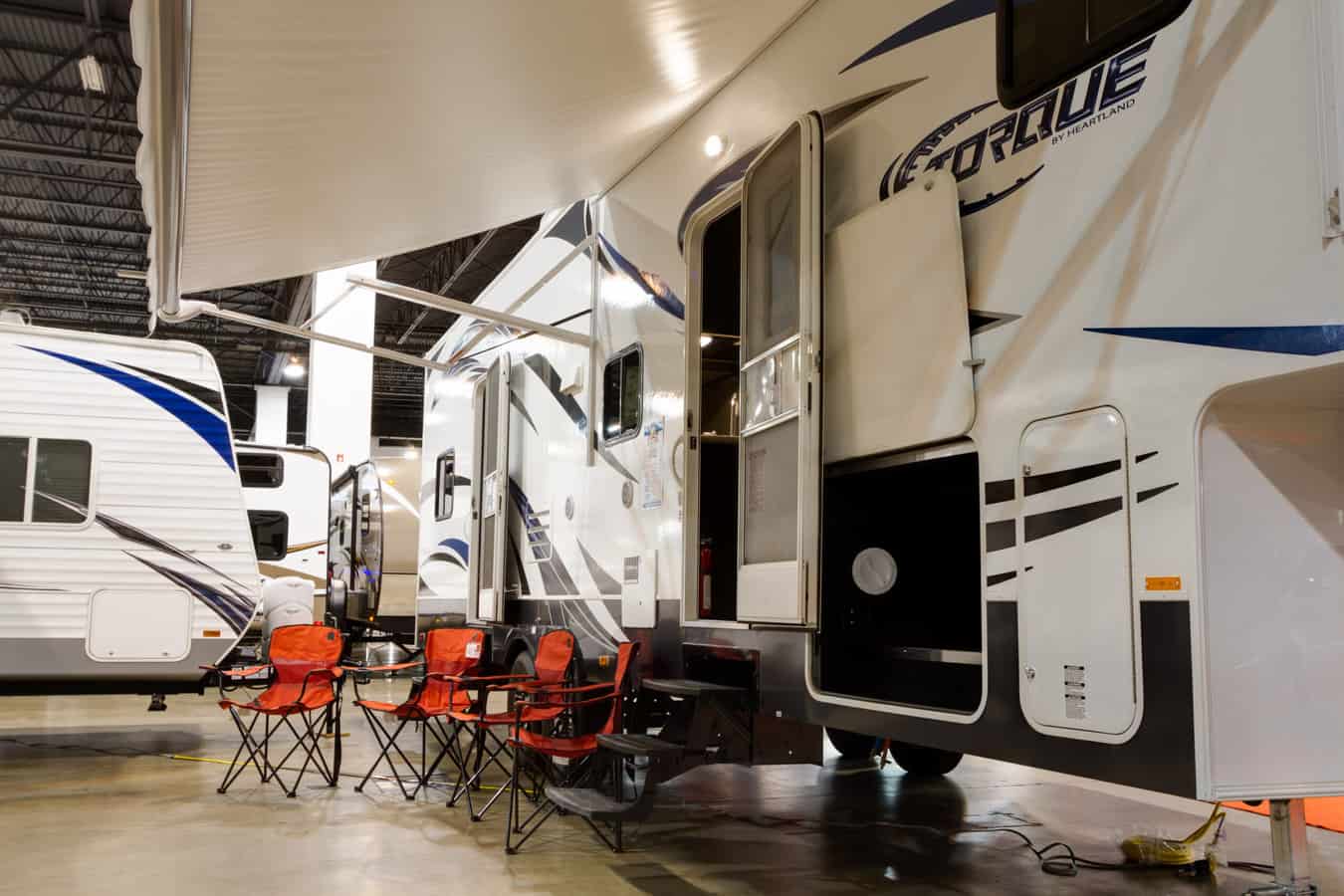
Is Now A Good Time To Buy An RV?
Before we get into how you can get the best deal on an RV in 2023, let’s take a look at some recent events affecting the market. Let’s begin in 2021.
In 2021, the RV lifestyle began to see a massive surge in popularity throughout the US and Canada. With restricted travel and vacation options, RVing suddenly came under the spotlight.
RVs presented the perfect means of escape to a restless populace hungry for a hassle-free way to get away from it all. In an RV, families could travel and go on holiday while still maintaining social distancing guidelines.
For the last two years, a record number of buyers have been competing with each other for a limited stock of RVs. Low-interest rates made financing for many buyers. They were just getting into the market at a time when social distancing and limited travel options made RVs a very attractive option. It’s been a seller’s market with previously unheard-of RV prices for two years.
For many RV buyers, 2021 through 2022’s inflated RV prices were easy to forget, especially when any RV could be financed at a low-interest rate in small payments made over 20 years. But just because lending rates were low didn’t always mean borrowers who were financing RVs would get low rates. In 2021, many new RVers got into financing their high-priced RVs at rates as high as a whopping 12.99%.
But RV salespeople pushed the idea of how low monthly payments, spread out over a 20-year term, could make dreams of worry-free RV freedom come true. “It’s just like a mortgage on a house on wheels” was their pitch. But an RV isn’t really a house on wheels. RVs often completely lose their value by the end of 20 years; however, a lot of them don’t last that long. A house continues to increase in value over time.
An RV loan goes underwater really fast and stays there. The hangover from giddily financing an RV would come later, as the cost of living soared while banks bumped up interest rates.
Buying an RV in 2023
The hangover from giddily financing an RV was inevitable. The cost of living (including the cost of fuel) began to soar, while banks bumped up interest rates to try to get things under control. By 2022, airline travel was pretty much back to normal.
New RVers are finding they don’t use their RVs as much as they thought they would when they were caught up in the maelstrom of 2020 and 2021. Some RVers are already being faced with refinancing RV loans in favor of longer-term, higher-interest loans, so they can afford to make payments on their RV financing contracts.
A recession in 2023 will most certainly see many lightly used RVs coming onto the market when people sell them to free up cash, get out from underwater loans, or when banks foreclose on delinquent loans.
An overabundance of RVs won’t just be coming from used RVs entering the market. That’s because 2021 and most of 2022 saw shortages of many models of RVs due to parts and/or worker shortages. But by the second half of 2022, these RVs finally began making their way onto dealers’ lots.
As early as February 2023, prices on RVs will see a significant downturn, and this will make it a prime time to purchase an RV, especially for buyers who can have cash ready. In addition, the following tips will help you to get the best deal on an RV in 2023’s buyer’s market.
1. Know what type of RV you want before you go shopping
The RV market is broad ranging, and you really need to know how you’ll use your RV before you do any actual shopping.
Start by finding a suitable type of RV for your needs. You can choose from Class A, B, or C motorhomes, truck campers, and all forms of travel trailers, as well as fifth wheels, camper vans, and everything in-between. What you choose will depend on your particular needs.
For example, a Class B or truck camper might be suitable for a solo RVer or a couple who plans to take it on occasional jaunts. However, a family with children will probably find themselves feeling pretty cramped in a Class B van. They’ll probably be better opting for a Class C, Class A, or bunk model towable.
That being said, If you don’t want to change out your RV in a few years, you’ll want to look into the future a bit. A newlywed couple might have a child in tow in a few years. At the other end of the spectrum, empty nesters might not want the expense of having a family-sized Class A motorhome anymore.
Also, if you are narrowing it down to a trailer or truck camper, be aware of what your truck is truly capable of towing without any squat. You’ll need to know its towing capacity, cargo capacity, and maximum hitch weight. Manufacturers of trucks usually over-state towing capacities, so you should always try to get a trailer that leaves you lots of wiggle room in terms of payload and towing capacities.
Never count on anyone at the RV dealership to set you up with an appropriately sized trailer for your tow vehicle. They are in the business of making money selling RVs. Your safety (and the safety of others on the road) while you tow is strictly your own responsibility.
2. Know what you are willing to pay
We live in a wonderful age. These days, you can go on the internet, check out video tours of RVs, and see floor plans of any model of RV. Once you’ve found a model and floor plan you love, it’s a good idea to find out what owners are saying about that model.
Decide on what you want and what you can afford to pay for an RV. RV Trader is useful for getting a rough idea of RV values in different areas.
JD Power’s NADA RV value webpage can be helpful for getting a rough idea of RV year and model values. National Vehicle can also make it easy to find the right RV within your budget.
3. Beware of lot rot
RVs aren’t meant to sit in one spot for months or years. Tires and other components can suffer from disuse. Avoid used motorhomes that have hardly any miles on them, or at least have them inspected by an independent inspector.
4. Shop at the right time
When you are looking into a buying an RV, it’s a good idea to go looking at RVs at the end of the month in the slowest months of the year. The end of the month will be when dealers are trying to meet quotas (if they haven’t already met them).
January, February, July, and August are often the best times to get a good deal on an RV.
5. Never pay the sticker price
Think of the sticker price as a waypoint to begin bargaining. Dealers set this at the highest dollar amount they think consumers will pay.
Go into the dealership with a model in mind and a price in mind, and don’t be persuaded out of either one. Make a reasonable offer that is within your budget, and don’t budge.
6. Don’t succumb to sales pressure
RV salespeople are professionals at selling RVs. Everything from the second you walk onto the dealership lot is designed to get you to buy an RV. An RV salesperson doesn’t often make a huge commission on the RVs they sell, so any sale they lose means less money on their already moderate income. An RV salesperson will always prefer to sell an RV to you, even at a discount.
By the way, when you walk onto the RV lot, be nice. Be as charming as you can be to the RV salesperson. They are far more apt to find you the best deal possible if they like you. They may even throw in some extra goodies if you are kind to them.
7. Don’t fall for these sales tactics
- Telling you “these RVs rarely come in and are in really high demand”. Know what’s available in and outside of your search area and at which dealerships.
- Feigning embarrassment and telling you the sales manager will laugh at your offer.
- Offering you a free week at a local resort or some other gimmick if you pay the full sticker price. They should be giving you that as a thank you for buying from them and not another dealership instead.
- Bait and switch. If you came in to discuss buying a certain RV, don’t get redirected to another RV in the dealership.
- “We’ll always be here for you wherever you go in your RV.” This phrase is used to persuade new RVers that the RV salesperson is their friend and that they’ll be buying an RV from a friend. It’s actually very rare that an RV salesperson wants to stay in contact with a buyer. They have RVs to sell. If they maintained a relationship with everyone who bought an RV, there wouldn’t be time to sell RVs.
8. Be ready to walk out the door
If the RV salesperson won’t meet your price, don’t be afraid to politely leave and go to another dealer. Leave your phone number or email in case they change their mind.
Finding someone willing to spend a lot of money on an RV is relatively uncommon. The last thing the RV dealer wants is for you to walk away from a potential sale.
9. Get an inspection by an independent RV inspector
Don’t agree to buy any new or used RV unless it’s inspected by an NRVIA-certified inspector. The RV dealer will almost always offer to have the inspection done for you. Never take them up on this. Hire your own RV inspector to do an unbiased and thorough inspection of the RV you are interested in.
The money you spend on an NRVIA inspection will buy you peace of mind and could save you from making a terrible buying decision. Visit their website to find an NRVIA-certified RV inspector.
Get tips from other RVers
One of the best parts about RVing is engaging with the community of traveling enthusiasts. iRV2 forums allow folks to chat with other RVers online, and get other perspectives on everything RVing, including products, destinations, RV mods, and more.
Related articles:




